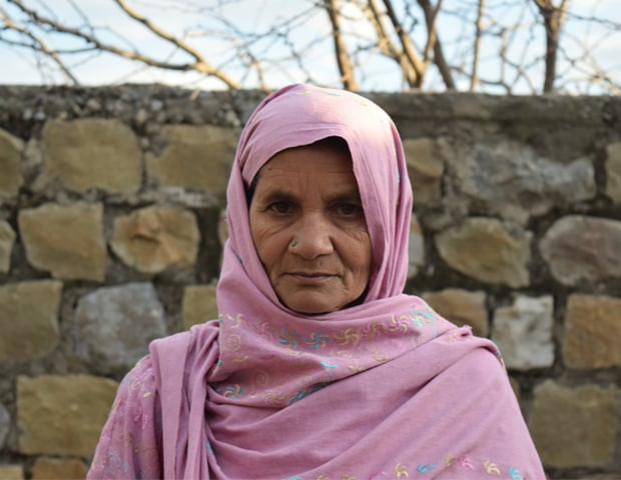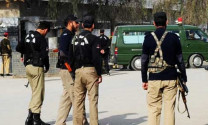From Swabi to Kurram: story of a woman kidnapped and sold thrice for marriage
Noorul Baha was first sold at the age of eight for Rs70,000 as per a tribal tradition called walwar

After years of struggle, Noorul Baha was finally reunited with her brother. She now works at a primary health centre. PHOTO: MUHAMMAD DAUD KHAN
According to this local custom practiced in certain parts of Federally Administered Tribal Areas (Fata), the groom’s family pays the price for the bride to the girl’s family. However, in Baha’s case, the kidnapper pocketed the Rs70,000 price and no questions were asked.
“I was playing with a doll outside my house when a woman grabbed me and left; I cried for help but to no use. The next thing I know, I was sold for marriage. In Tirah Valley, paying for a bride is a common practice in certain tribes. The price varies for each person based on their body, beauty and education,” she says.
Kidnapping, forced marriage: Pakistan's Hindu women hope for protection in new law
Having brought up in the Khyber-Pakhtunkhwa province, Baha was unaware of the tribal customs and lifestyle. She didn’t even understand the Pashto dialect spoken in the region. However, her miseries were not limited to just that. Only three years into the marriage, her husband decided to divorce her and sell her again. Her second husband moved to Qatar for work and died there which prompted her in-laws to sell her yet one more time – this time to an aged man with two wives.
As Baha was tossed from one husband to another, she tried hard to get in touch with her family in Swabi. She recorded audio messages on cassettes and requested acquaintances to write letters on her behalf but her pleas were responded with silence. “Back then, there was no telephone service in the tribal areas and mail or tapes were the main source of communication. I sent more than 30 letters and 10 cassettes but nothing happened. I eventually gave up,” Baha shares.
After several decades, Baha saw another chance last year and leapt to it. Living as an internally displaced person at Durrani camp in Kurram Agency, Baha heard that a barat was going to Nowshera, which borders Swabi. She took permission from the elders and left with the wedding procession; she patiently waited for three days and then headed to her family home.
“I arrived in my village at noon and everything was different. I couldn’t find anyone who knew me or my parents. Luckily, I met a shopkeeper who remembered me,” Baha says, sharing that the man gave her the sad news of her parents' death.
Upset, Baha then started looking for her brothers who had moved away to a new place. “I called a cell number and spoke to my brother. I repeated the names of my parents and siblings and he confirmed,” Baha says with a relief.
Pakistan seeks to curb child, forced marriages with harsher punishment
After years of struggle, Baha was finally reunited with her brother who insisted she return to Swabi and live with his family. She didn’t go as the rough mountains of Tirah are her home now.
Baha has now settled in the tribal life. She divides her time between playing with her grandchildren and working at a primary health centre. Associated with a local humanitarian organisation, Baha plays the role of a mediator between patients and doctors.
Muhammad Daud Khan is Islamabad-based freelance journalist. He tweets @daudpasaney



















COMMENTS
Comments are moderated and generally will be posted if they are on-topic and not abusive.
For more information, please see our Comments FAQ